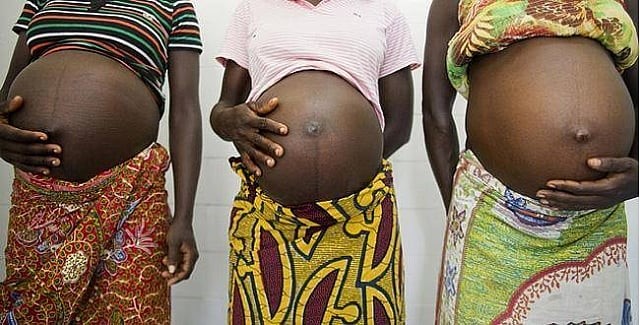AYV News, September, 12, 2024
Nine-One Thousand, Four Hundred and Ninety-Four Induced Abortions committed in Sierra Leone in twelve months. This is according to the Abortion Incidence and Severity of Complications in Sierra Leone Evidence Brief 2022.
This research was supported by the Swedish International Development Cooperation Agency – Grant No. 12103 through the African Population and Health Research Center (APHRC).
The Brief reported that in the Eastern Region of Sierra Leone, 14,848 induced abortions were committed, with 15,105 in the Northwest Region, Northern 23,973, Western Region 16,866 and Southern Region 20,702 respectively.
The Brief furthered that an estimated 91,494 induced abortions occurred in Sierra Leone in 2021, corresponding to an induced abortion rate of 44.2 abortions per 1000 women of reproductive age (15-49 years) (Table 1), and a PAC treatment rate of 13.3 per 1,000 women of reproductive age.
There are substantial regional variations in the abortion incidence and PAC treatment rates. The study used the Abortion Incidence and Complications Methodology (AICM) approach to estimate the induced abortion incidence and the severity of complications. Data were collected using three surveys which are; Health Facilities Survey (HFS), Knowledgeable Informant Survey (KIS) and Prospective Morbidity Survey (PMS).
All data collection was done between September and November 2021. The study was reviewed and approved by the Sierra Leone Ethics and Scientific Review Board and the APHRC Internal Review Board.
The study was reviewed and approved by the Sierra Leone Ethics and Scientific Review Board and the APHRC Internal Review Board.
In Sierra Leone, abortion is legally restricted, only allowed to save the lives of pregnant women, in case of rape or incest and, to preserve the physical and mental health of the woman. While the Sierra Leone government has made significant strides in addressing maternal health outcomes through various legislative and policy reforms, the persistently high maternal mortality rate in the country suggests that unsafe abortion continues to pose are a threat to the health and lives of women of reproductive age.
Despite the need to better understand the incidence and safety of induced abortion in Sierra Leone, little scientific evidence currently exists. This study aims to estimate the incidence of induced abortion, the severity of abortion complications, and the type and quality of post-abortion care women receive in health facilities.
The evidence provided in this study will help inform the relevant national policies, strategies, programs and advocacy efforts needed to reduce maternal mortality and strengthen the health systems in Sierra Leone.
The majority of women treated for induced or spontaneous abortion-related complications were attended to in primary health facilities (86%), and in public health facilities (81%), suggesting that the public and primary facilities bear the highest burden of providing PAC services in Sierra Leone.
Of all pregnancies in the country in 2021, 38% were unintended, and of all these unintended pregnancies, 63% ended in abortions. Abortions constituted 21% of all pregnancy outcomes.
Five hundred and twenty-two were interviewed during the 30-day PMS data collection. Slightly more than half of all PAC clients were 24 years old or younger (51%), while about 10% were 35 years or older.
Similarly, the majority of women were from rural settings (56%), married or in a union (72%), and had secondary-level education (50%).
The most common types of abortion-related complications for women who presented for PAC services were clinical signs of infections (36%) and evidence of foreign bodies (35%). Nearly one-fifth had sepsis (23%). There was one death during the one-month study period.
After categorising the severity of postabortion complications using clinical indicators, about 18% of the women presented with mild complications, 40% with moderately severe, and 34% with severe complications. Almost one in ten (8%) were classified as “near misses”, meaning the woman almost died due to the postabortion complication.
The evidence derived from the study should be used to strengthen programs targeted at reducing unsafe abortions, improving the availability and quality of comprehensive abortion care services, bolstering policy engagement, and informing campaigns and advocacy around the abortion discourse in Sierra Leone.
The study offers some recommendation stressing the need for legal and policy reforms to address the causes of unsafe abortions and unintended pregnancies and move towards domesticating the Maputo Protocol.
It also recommended that the government should increase access to quality family planning services and effective modern methods for all women and men.
The study further recommended the expanding access to Quality post-abortion care, including post-abortion
Contraception counseling and method provision at all health system levels; conducting community education and awareness on the dangers of unsafe abortion, legal provisions on abortion, stigma reduction, and contraception and family planning to prevent unintended pregnancies.

